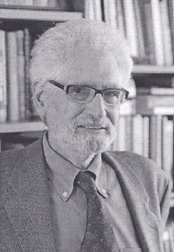In Memoriam
Michael T. "Timo" Gilmore

"Timo" Gilmore
Brandeis - 2014

Michael Gilmore
1963 graduation
Michael T. Gilmore, professor emeritus of English, died on March 3, 2014, after a brief, serious illness. He was 72.
Known affectionately as Timo, he came to Brandeis in 1974 after earning his PhD at Harvard University. He helped Brandeis' English department achieve a national reputation in the study of American literature, particularly in 19th-century literature and culture.
Timo wrote eight books and dozens of articles during his years at Brandeis, beginning with “The Middle Way: Puritanism and Ideology in American Literature" (1977). His scholarship paid particular attention to the relationship between literature and politics, and he brought to his literary study the skills and learning of a historian and the deep political commitments that marked his Michael T. Gilmore sensibility. His second book, "American Literature and the Marketplace" (1985), and the collection "Rethinking Class: Literary Studies and Social Formations"(1994), edited with Wai Chee Dimock, showed the tangled relationships among American authors, the literary marketplace and world economics, and the engagement of American authors with issues of class difference and class struggle.
Two later works, "Differences in the Dark: American Movies and English Theater" (1998) and "Surface and Depth: The Quest for Legibility in American Culture" (2003), explored how American politics and American economic history gave a distinctive cast to American works across genres and periods. His last book, "The War on Words: Slavery , Race and Free Speech in American Literature" (2010), discussed how the struggle over slavery and race from the American Renaissance through the end of the 19th century was also a struggle over freedom of expression, with the urgent call for racial justice always contending with forces that would repress or divert criticism.
At the time of his death, Timo was hard at work on a study of literary radicalism in his beloved Cambridge.
Timo served as chair of the English department several times. His lecture survey on 19th-century American literature was a "must-take" course among undergraduates , and his seminars gave the English graduate program its unique flavor. He was a generous, patient and demanding graduate adviser who helped many doctoral students find their way through their dissertation. His students are teaching American literature -in ways shaped by his influence -at colleges and universities around the world.
Most of all, he was a wonderful colleague and a devoted friend to all of his students.
from Charles Faulhaber:
Frank Wentholt and I roomed with Timo Gilmore freshman year in Welch Hall. In some respects we were the odd trio. I would get up early for an 8:00 a.m. class. Timo would arise sometime in the afternoon but neverwent to bed before 2:00 a.m.
He was truly a polymath (but never seemed to study), an aesthete, a skeptic, and neatness challenged. (We had to keep his bedroom door shut at all times). With his hours we didn’t socialize a lot, but he thought incisively and critically and could seemingly write top grade work with ease and grace.
from Tom Greenspon:
It was in the dorm room that you describe, Charles (maybe you were there?), during an evening of general conversation and revelry, that I wandered into Timo’s lair and into a discussion that changed my life. As an exemplar of Prep School Syndrome, I was enjoying the great freedom of college life, including a certain freedom from serious thought. I was pre-med at the time, although that would change in due course as I aimed instead for graduate school; Timo’s basic message to me, sage that he was, was that I might want to get serious about my academic career if I wanted to pursue the goals I said I had. I wouldn’t have heard it from many adults at the time, but Timo’s perceptiveness launched my ascent, by year’s end, to near the top of our class. Timo and I later joined others to co-found the Yale Student Peace Union; he and some of his friends were part of a group that I felt especially close to and enriched by. Time and change had made these friendships more distant, but indeed not broken. I am profoundly sad for Timo’s family, and, given my experience with him, for all of his students and colleagues as well.

